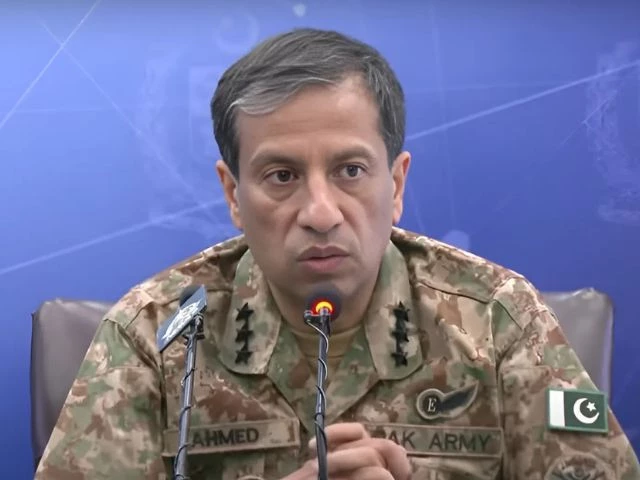Pakistan seeks peace but prepared for war if imposed: DG ISPR
'We told them plainly that dialogue could only follow an appropriate response,' the DG ISPR stated.

Inter-Services Public Relations (ISPR) Director General Lt Gen Ahmed Sharif Chaudhry on Wednesday dismissed India’s claim of having issued a prior warning about its recent military actions, calling it “absurd” and reiterating that Pakistan does not rely on Indian intelligence for national security.
Speaking to the BBC, he revealed that India’s Director General of Military Operations (DGMO) had contacted Pakistan on May 7 to initiate dialogue amid escalating tensions.
“We told them plainly that dialogue could only follow an appropriate response,” the DG ISPR stated. He added that following Pakistan’s retaliation, India’s military spokesperson publicly announced that New Delhi did not wish to escalate further.
“We prioritise peace and love peace, but we are always ready for war, and if war is needed, then so be it,” the military's spokesperson said.
Lt. Gen Chaudhry credited the restraint shown by Pakistan and recalled past examples, including US diplomatic intervention during the 2019 Pulwama attack. “External actors, too, want to avoid another South Asian war,” he said.
Calling India’s intelligence claims “fabricated”, he noted that Pakistani air defence systems detect intrusions instantly, especially when Indian drones breach its airspace. He further criticised the Indian state, accusing it of being “hijacked by a terrorist act”.
“India keeps constructing false narratives to justify its actions every few years,” he said.
On the issue of nuclear war, the army spokesperson was clear: “It would be madness. The very idea must remain irrational and unimaginable.”
He concluded, “Pakistan desires peace, but if war is imposed, we are fully prepared. India is playing with fire by promoting falsehoods and displaying arrogance.
Pakistan-India recent conflict
The latest escalation between Pakistan and India began on April 22, when an attack in Pahalgam killed 26 people. India immediately blamed Pakistan for the incident. However, Pakistan categorically rejected the Indian blame.
In response, India undertook a series of hostile actions the next day on April 23, including suspending the 65-year-old Indus Waters Treaty (IWT), cancelling visas for Pakistani citizens, closing the Wagah-Attari border crossing, ordering the shutdown of the Pakistan High Commission in New Delhi, and reducing diplomatic staff at each other's embassies.
Tensions further escalated in the early hours of May 7, when missile strikes hit six cities in Punjab and Azad Jammu and Kashmir (AJK), destroying a mosque and killing dozens of civilians, including women, children, and the elderly.
Read More: French intelligence official confirms downing of Rafale by Pakistan
In a swift military response, Pakistan’s armed forces shot down Indian warplanes, including three Rafale jets. The confrontation intensified again in the early hours of May 10, when India targeted several Pakistani airbases with missile strikes. In retaliation, Pakistan launched Operation Bunyanum Marsoos, damaging Indian military installations, including missile storage sites, airbases, and other strategic targets.
On May 10, US President Donald Trump announced that a ceasefire had been reached following intense diplomatic efforts overnight. Minutes later, the agreement was confirmed separately by Pakistan’s Foreign Minister Ishaq Dar and the Indian foreign secretary.






















COMMENTS (1)
Comments are moderated and generally will be posted if they are on-topic and not abusive.
For more information, please see our Comments FAQ